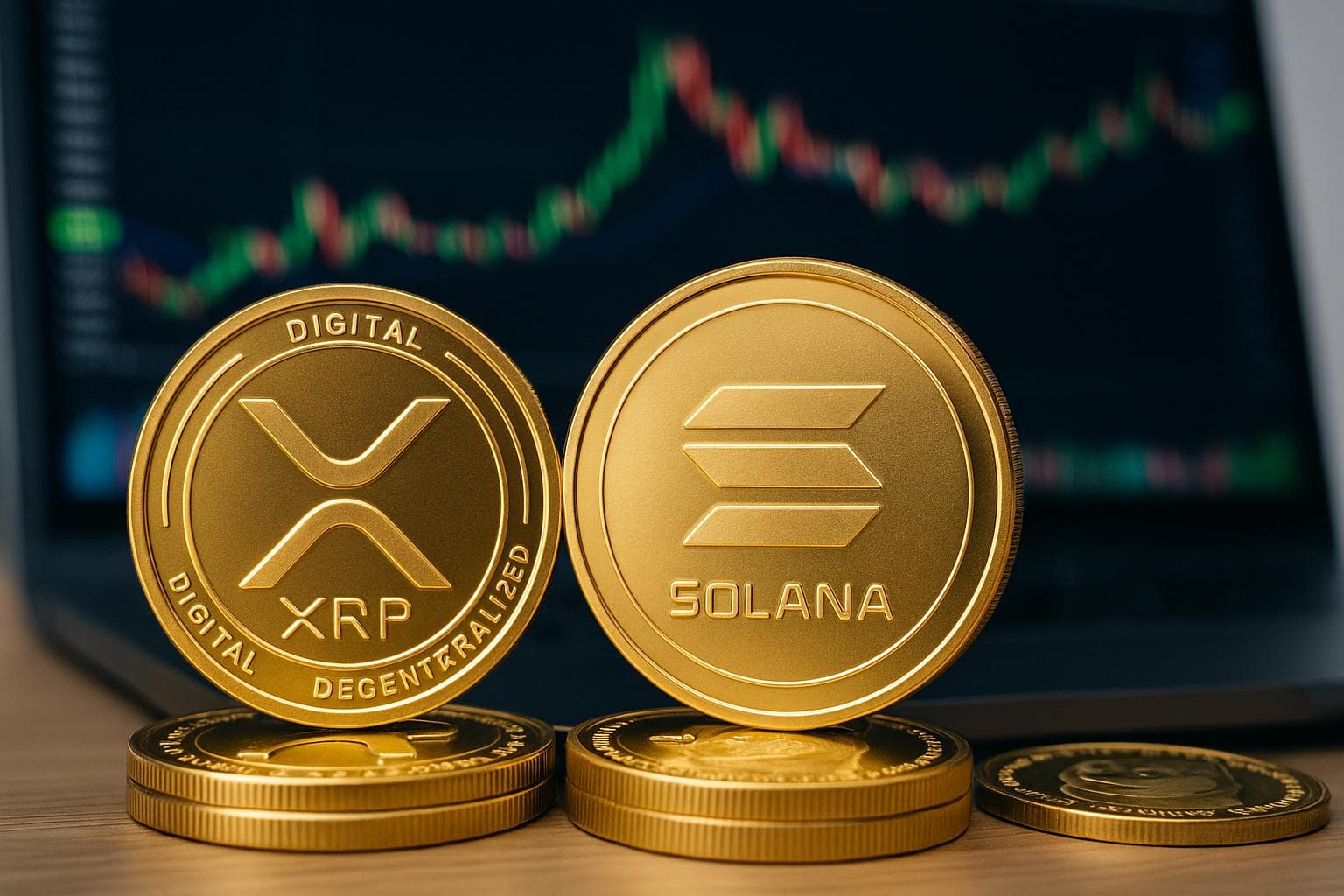Altcoin ETFs Could Reshape the Market Landscape
After months of speculation and record-breaking inflows into Bitcoin and Ethereum ETFs, attention is now shifting toward the next potential wave: exchange-traded funds linked to Solana, XRP, and Dogecoin.
The U.S. Securities and Exchange Commission (SEC) is reportedly reviewing several altcoin ETF filings, marking what could be a pivotal expansion of institutional-grade crypto exposure. Industry observers say approval could trigger a fresh phase of price discovery — and possibly, the most significant capital rotation since Bitcoin’s spot ETF debut earlier this year.
“The ETF market doesn’t stop with Bitcoin and Ethereum,” said one New York-based digital asset strategist. “What we’re seeing now is the formal integration of altcoins into mainstream investment structures. It’s not a question of if, but when.”
Why the ETF Pipeline Is Heating Up
The demand for regulated crypto exposure has exploded since spot Bitcoin ETFs launched. These products have collectively attracted over $5.9 billion in inflows in the last month alone, making them among the most successful ETF rollouts in financial history.
Now, issuers and asset managers are preparing to capitalize on that momentum by expanding into high-liquidity altcoins. Solana, XRP, and Dogecoin are the most frequently mentioned names in filings and early-stage product proposals.
Each offers a unique narrative:
- Solana (SOL) for its technical speed and ecosystem growth.
- XRP for its regulatory clarity following last year’s partial court victory.
- Dogecoin (DOGE) for its retail power and market familiarity.
That combination — regulatory progress, liquidity depth, and strong branding — makes them logical next candidates for ETF inclusion.
What ETF Approval Would Mean for the Market
If one or more of these altcoin ETFs secure approval, the immediate market effect could be dramatic. Analysts predict a surge of new institutional inflows and retail demand, as exposure becomes possible through retirement accounts and brokerages that previously blocked direct crypto trading.
In the short term, ETF approval tends to create a “liquidity shock” — prices rise sharply as traditional funds rush to gain exposure. Bitcoin’s ETF debut earlier this year pushed volumes and volatility to multiyear highs.
But the longer-term impact is more structural. ETFs lock up real tokens in custody, effectively reducing circulating supply, while generating ongoing passive demand through index rebalancing. That dynamic often supports gradual price appreciation even after initial hype fades.
As one market researcher put it, “ETF inflows act like slow-burning fuel. They don’t create a pump; they create a floor.”
The Institutional Factor: What Smart Money Watches
Institutional investors are already running scenario models around possible altcoin ETF approvals. Key factors they’re tracking include:
- Custody Infrastructure — whether major custodians (like Coinbase Custody or BitGo) can securely manage Solana and XRP assets at scale.
- Liquidity Depth — thin markets can magnify volatility once ETFs begin absorbing spot supply.
- Regulatory Pathway — altcoins still face more classification uncertainty than Bitcoin and Ethereum.
- Correlations — investors are watching how SOL, XRP, and DOGE behave relative to BTC and ETH during high-volatility sessions.
If ETFs are greenlit, analysts expect major asset managers to roll out thematic crypto baskets, combining BTC, ETH, and select altcoins under “multi-chain exposure” branding. This could bring billions in new inflows from institutional portfolios previously barred from holding crypto directly.
Why Approval Isn’t Guaranteed
Despite the momentum, regulatory caution remains. The SEC has delayed or requested revisions on multiple altcoin ETF proposals this year, citing the need for clearer custody rules and price discovery mechanisms.
Solana, in particular, faces questions about decentralization levels and market concentration, while XRP continues to navigate post-lawsuit regulatory ambiguity despite partial court clarity.
Still, insiders believe the groundwork is being laid behind closed doors. The SEC’s approach toward Ethereum ETFs — once deemed unlikely — has shifted, suggesting precedent for broader approvals if market structures mature.
“It’s all about timing and optics,” said one Washington-based policy analyst. “The SEC wants to ensure stability before signaling open doors for altcoins. Once one gets approved, the rest could follow in quick succession.”
The Ripple Effect for Retail Investors
For retail traders, altcoin ETF approvals could finally bridge the gap between crypto-native and traditional finance ecosystems. The ability to buy exposure through regulated brokers would unlock entirely new audiences — especially in Europe and the U.S., where many investors remain restricted by compliance barriers.
However, analysts warn that expectation risk remains high. If approvals are delayed or denied, short-term corrections are likely, especially for tokens that have already priced in optimism.
That means investors should focus less on speculation and more on fundamentals — network growth, developer activity, and real use cases. Those are the metrics that will sustain valuations once the ETF hype cools.
Tokenization’s March Toward Mainstream
The ETF story is part of a broader trend: the institutionalization of crypto. As tokenized assets, on-chain funds, and regulated ETFs converge, the industry is evolving from experimental markets to structured, investment-grade products.
If altcoin ETFs arrive by early 2026, the crypto market could see its most diversified capital wave yet — one where blockchain assets sit alongside equities and bonds in traditional portfolios.
The market isn’t asking whether crypto belongs in mainstream finance anymore. It’s preparing for the moment when it becomes inseparable from it.

